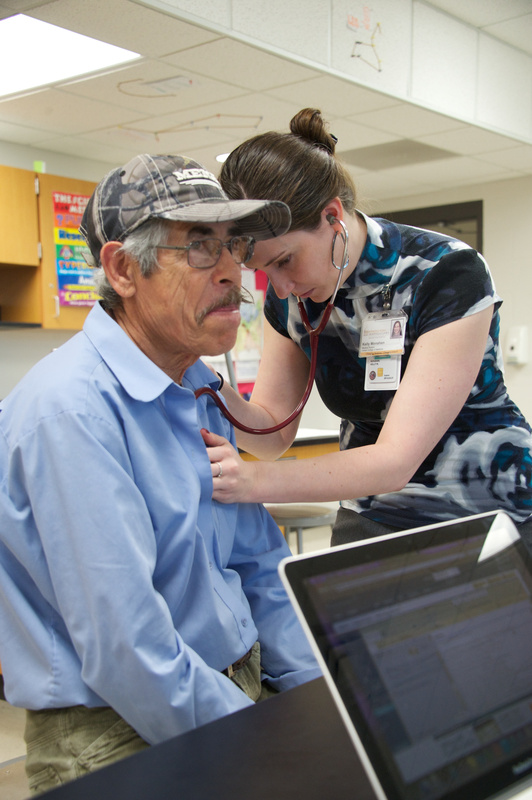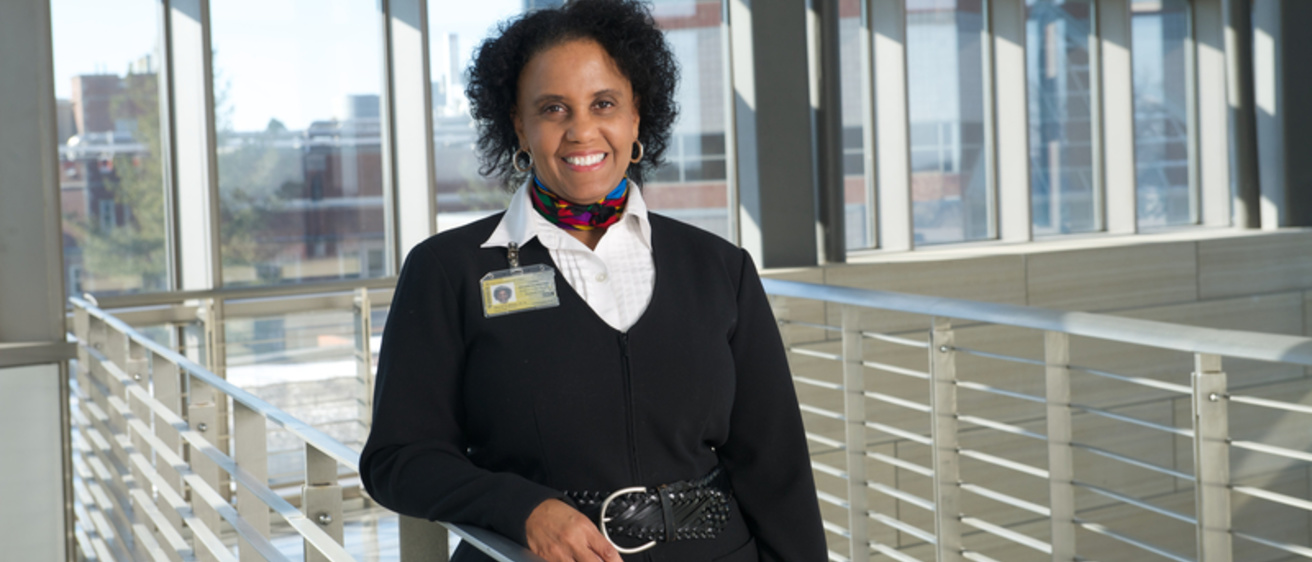Since mid-April, Sherree Wilson has traveled Iowa from Sioux City to the Quad Cities, advising health care providers on how to treat the variety of patients they see.

She’s not touting the latest medical interventions, however. Instead, she is introducing the idea of culturally responsive care, where providers develop an understanding of the local patient population, recognize the potential for bias in encounters with their patients, and select tools for effective cross-cultural communication.
For example, when English isn’t their first language, patients could be at risk if they don’t understand medication information or treatment options. And for some patients, cultural or religious beliefs may deem it inappropriate for a female patient to be seen by a male provider.
“I generally begin the sessions (with providers) with a caveat: Learning to practice in a culturally responsive way is a journey, not a ‘one-shot wonder,’ ” says Wilson, associate dean for cultural affairs and diversity initiatives in the University of Iowa Roy J. and Lucille A. Carver College of Medicine.
Wilson is crisscrossing the state giving faculty development workshops at the six UI-affiliated Regional Medical Education Centers, which coordinate the teaching of health professions students by community-based providers. Next month she co-chairs, with Joel Gordon, professor of internal medicine, a daylong conference offering Iowa’s health care professionals and those in training strategies to improve culturally sensitive and responsive care. Understanding their patients’ social, cultural, racial, ethnic, and religious backgrounds helps providers deliver care that is more equitable, safe, and patient-centered.
• Culturally Responsive Health Care in Iowa, a multidisciplinary conference sponsored by the University of Iowa
• Friday, June 6
• Marriott Hotel and Conference Center, Coralville
• For practicing and future health professionals committed to improving access to quality health care and reducing health disparities
• Registration and information: www.medicine.uiowa.edu/cme. Registration deadline is May 30.
The Culturally Responsive Health Care in Iowa conference is sponsored by UI Health Care and the UI health science colleges June 6 in Coralville.
“The changing demographics of Iowa mean we have an increasingly diverse patient population as well as a genuine interest from the members of the UI Health Care community to learn more about how we can be responsive not only to our patients, but to our colleagues and students as we deliver the high quality of care for which we are recognized,” Wilson says.
In fiscal year 2013, there were more than 1 million patient visits to UI Hospitals and Clinics and the network of UI Health Care locations in nearby communities and counties, plus outreach clinics around the state.
Wilson’s recent travels and the upcoming conference are the latest efforts by UI Health Care to build a culturally sensitive and responsive health care environment in Iowa. Nearly two years ago, a clinic designed to specifically serve the lesbian, gay, bisexual, transgender, queer, and questioning (LGBTQ) community opened at UI Hospitals and Clinics—Iowa River Landing in Coralville. Culturally responsive care starts at check-in when the patient information form asks which gender a patient self-identifies.
Cultural responsiveness is addressed as well at all levels of training, from the medical school curriculum to resident physician training and continuing medical education. Soon, UI Health Care will provide its learners and practitioners access to CultureVision, an online database for subscribers that hosts up-to-date, researched, and reviewed information about a variety of cultural groups across clinical and nonclinical areas.
“We want to build on what is currently happening and continue to move forward so that ultimately the delivery of culturally responsive care is standard operating procedure throughout UI Health Care and throughout Iowa,” Wilson says.
Editor's Note: Molly Rossiter contributed to this story.
